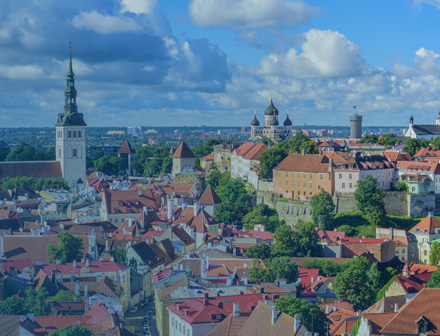This website uses cookies so that we can provide you with the best user experience possible. Cookie information is stored in your browser and performs functions such as recognising you when you return to our website and helping our team to understand which sections of the website you find most interesting and useful.
We speak to Sue Crengle, Professor Hauora Māori (Māori Health) at Ngāi Tahu Māori Health Research Unit, University of Otago, Aotearoa New Zealand
What led you to work in the field of lung cancer?
My father died from lung cancer in 2010. In 2014, a team of people I was working with tried to get lung cancer screening piloted here – without luck. In 2018, we started working on this issue again and have a programme of research underway.
I am a general practitioner (GP) and public health medicine specialist. I’m also a professor of hauora Māori (Māori health). My Iwi (tribal) affiliations are Kāi Tahu, Kāti Māmoe and Waitaha. In the GP clinic I have cared for people affected by lung cancer and their whānau (families), across the spectrum of making the diagnosis to providing palliative care.
In my public health medicine specialist and professorial roles I am the principal investigator for a programme of lung cancer screening research in Aotearoa New Zealand. The team I work with are committed to designing a lung cancer screening programme that is effective, equitable, culturally safe and acceptable – especially for Māori, who experience the greatest burden of disease. My father, like many other Indigenous Māori people, died from lung cancer. I feel strongly about improving lung cancer care across the pathway from tobacco control to palliative care. I’m especially passionate about lung cancer screening for asymptomatic people.
What does an average workday look like for you?
My average day varies depending on if I am in the GP clinic or at the university. At the clinic, I see people as a GP, but also have a role as the clinical director. The rest of the time I do research, teach students, attend meetings and sometimes get time to write!
What is working well in Aotearoa New Zealand, and what could be improved?
In 2020, lung cancer was the leading cause of death for Māori females and the second leading cause of death for Māori and non-Māori males and non-Māori females. We don’t have a lung cancer screening programme in Aotearoa New Zealand yet.
However, the team I work with are conducting research addressing a range of questions about lung cancer screening, such as: what different ways of inviting people to take part in risk assessment and screening are there? What are the outcomes of screening (e.g. number of positive scans, number of cancers, type and stage distribution of cancers)? What are people’s experiences of the lung cancer screening pathway? The findings will be used to inform the development of a national lung cancer screening programme.
What motivated you to join the Lung Cancer Policy Network?
I was interested to hear what other people and countries are doing, to talk to people working in the lung cancer screening area, and to share information.
The Network is a great opportunity to share information, resources and to learn from others about the different ways that lung cancer screening has been applied in local contexts.
What changes would you like to see in lung cancer care on a global level?
In Aotearoa New Zealand, our very poor five year survival rate for lung cancer, especially for Māori, is driven by a range of factors including stage at diagnosis, comorbidities, differences in access to care, and challenges with access to new treatments. I’d like to see earlier diagnosis quicker response to symptomatic disease, and screening of asymptomatic people at high risk of developing lung cancer. This needs to be accompanied by improvements in the diagnostic and treatment pathways, including access to newer treatments and precision medicine. Of course, all of this also needs to be accompanied by determined efforts to eliminate the current inequities in these areas experienced by Māori, while avoiding new inequities being introduced as new approaches and treatments are implemented.
What recent research have you found the most interesting or exciting?
The research that showed the low-dose computed tomography screening reduces lung cancer mortality, along with all the ongoing advances in precision medicine.
Outside of work, what do you spend your time doing?
I’m an active member of my rūnaka (my sub-tribal group) and I do CrossFit.
The Lung Cancer Policy Network brings together a unique mix of experts in lung cancer from around the world, united in their passion to eliminate lung cancer as a cause of death.
We regularly share profiles of our members so that you can find out more about what led them to work in lung cancer and what changes they would like to see in lung cancer prevention and care on a global level.
Recent news
News

Network produces recommendations for lung cancer screening in Asia Pacific
The Lung Cancer Policy Network recently hosted a collaborative workshop with the Asia Pacific Coalition Against Lung Cancer during the Asia Conference on Lung Cancer.
Blog

2024 reflections: a year of progress across the global lung cancer community
More people have access to LDCT screening than ever before. This year, four more countries have made a formal commitment to implement LDCT screening for lung cancer, and several implementation studies are under way.
Case study

Building evidence to inform future roll-out of lung cancer screening in Estonia
We examine the key evidence used to inform the development of a national screening programme for lung cancer in Estonia from 2021 to date.
